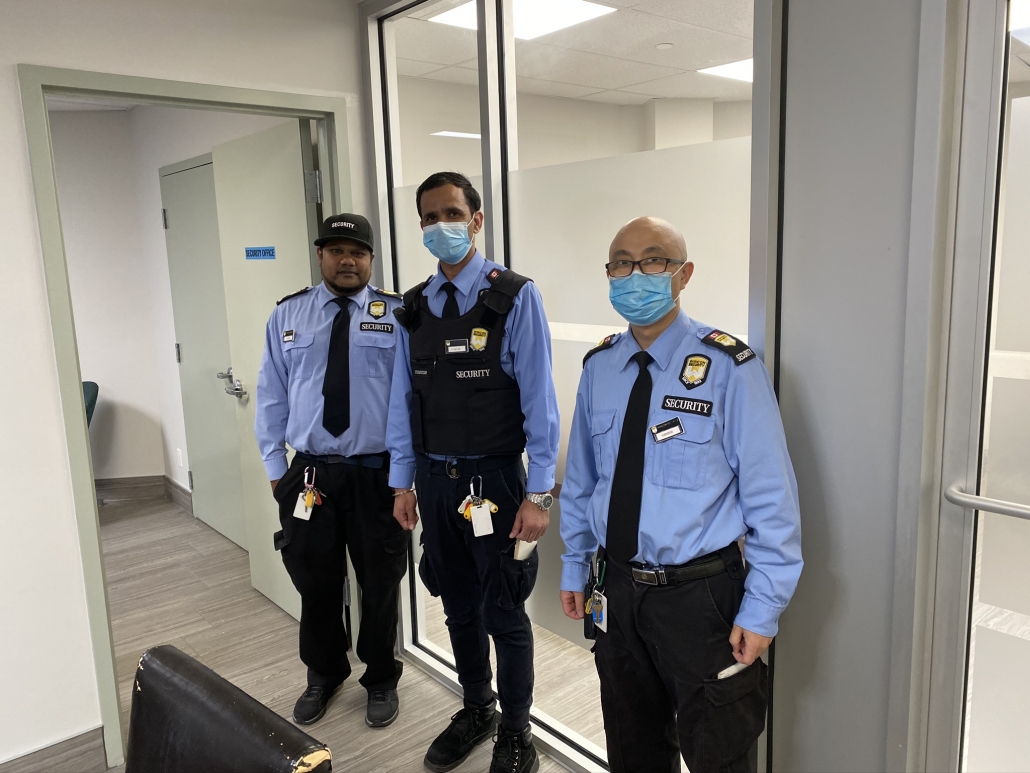A new crop of ultra-tall condominiums—many of them mixed-use incorporating retail, hotel and other elements—are sprouting up across Toronto’s downtown core. As they continue to redefine the city’s skyline, property owners and managers are slowly discovering the many challenges that arise when attempting to maintain these soaring communities.
Buildings such as Aura at Yonge and Gerrard (78 stories), 1 Bloor East (currently under construction and planned for 76 stories) and The One (which could top 80 stories upon completion) are the three most-discussed of Toronto’s new ultra-tall condo towers. If recent history offers any lessons, they will likely cost far more to maintain than more traditionally-sized condominiums.
From HVAC systems maintenance to materials costs to ongoing repairs, condominium residents could face hefty bills in the years ahead. If the recent glass problems that have plagued some Toronto condos continue to recur—including falling glass pains and deteriorating window seals—those bills could be particularly expensive to cover, possibly even resulting in costly special assessments being levied on residents.
But condominium corporations tasked with maintaining these mega high-rise skyscrapers should also keep another key consideration in mind: the heightened security costs that come with living in a tower taller than 50 stories.
In many condos, a corporation will enlist the services of a security firm such as ours and request round-the-clock concierge services. That will often require assigning a single guard to patrol key areas, monitor CCTV cameras and assist residents with tasks such as accepting deliveries in the building’s lobby. In larger buildings, the recommendation is typically for two guards to be on duty at any given time—including a patrol guard. While it’s always optimal to have as many security staff on site as possible—the more eyes and ears, the better—this allocation of security resources is usually adequate for a condo building.
But this formula comes into question when dealing with huge towers. There are so many more challenges to manage with a building the size of Aura, for example, that addressing the sheer number of operational issues to secure a building of this size—and housing that many residents—increases virtually exponentially. So, where to begin?
It starts by assessing the building’s potential security vulnerabilities. That means considering everything from weak points where burglars or vandals could enter the property, to identifying key operational considerations that a security team would need to monitor to keep the property safe on an ongoing basis. Once those vulnerabilities are highlighted, any reputable security firm should be able to develop a comprehensive building security strategy that protects residents and helps contain costs related to ongoing building maintenance and protection.
From there, we always recommend assessing risk in four key areas:
Emergency preparedness and evacuation—Evacuating a building with thousands of residents and from dizzying heights is a remarkably complex task. One security guard sitting in a lobby—no matter how experienced and skilled she may be—will not be able to manage the task alone. From that perspective alone, it’s clear that ultra-high-rise properties should have multiple guards on duty at any given time.
Lobby access—Nowadays, condominium residents want security guards who are as focused on their comfort as their security. That means being available to welcome guests, accept packages, in some cases even providing hotel concierge-style services such as restaurant reservation booking. What can’t be forgotten is that a security guard’s primary role is exactly what their job title describes: security. The other duties are operational distractions, albeit ones in high demand. We recommend having multiple guards on duty in a lobby at any given time to ensure safety and security. Remember that with that many residents in a single condo, the number of visitors will be dramatically greater than in a smaller building, thereby increasing the demand on a single guard’s time and attention. For tall, luxury condos, one creative solution to ease the pressure on front-line security staff is to hire a dedicated concierge who only manages the peripheral, time-consuming tasks such as assisting residents with lifestyle-related requests and handling deliveries.
Facility security—Another important reason to adequately staff an ultra-tall condo is the fact that it likely contains multiple shared spaces such as party rooms, fitness facilities, a pool, movie theatre, and more. Every time you add elements such as these to a building, it increases the risk of abuse, damage or other unpleasant issues that security staff need to manage. A single guard will not be able to keep an eye on the front door, ensure that partiers are using the shared facilities appropriately, manage noise complaints, deal with a broken elevator and whatever other matters might arise during their day. Having multiple guards on duty will help ensure that recreational and leisure facilities are kept safe and secure at all times.
General maintenance challenges—That broken elevator that I mentioned in the previous point is only one of the many maintenance-related issues that can occupy the time of a condominium security team. When the building they’re monitoring stands at a height of 60 stories or more, there will inevitably be a more extensive bank of elevators to service, not to mention HVAC, plumbing, a larger garage area and other points around the property where maintenance problems can—and inevitably will—arise. It always makes sense to train security personnel in the basics of operating key equipment such as fire panels, but processes also need to be in place to help them manage maintenance-related emergencies. That’s only possible with adequate staffing to ensure that any on-duty security officer has the ability to inspect and report maintenance issues without delay.
Winston Stewart, founder
Wincon Security

